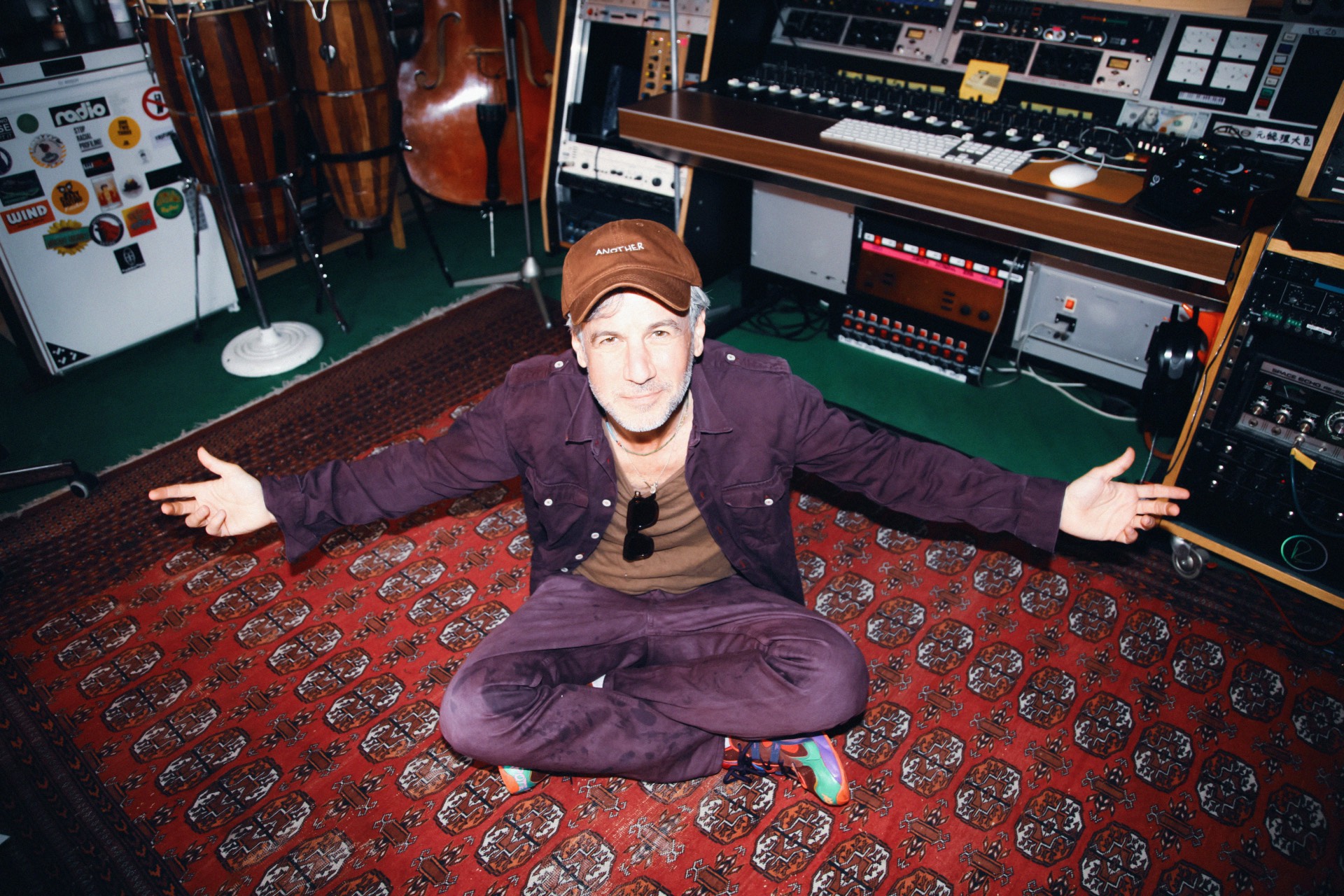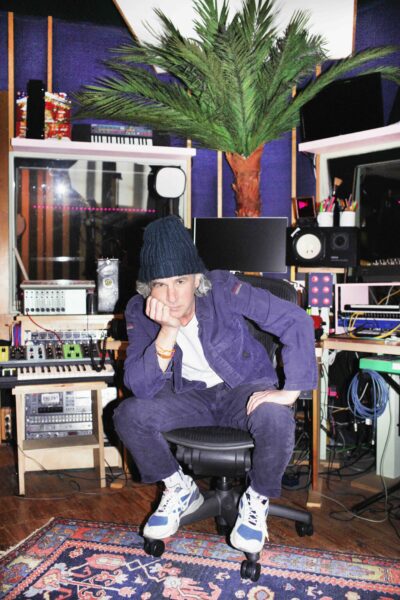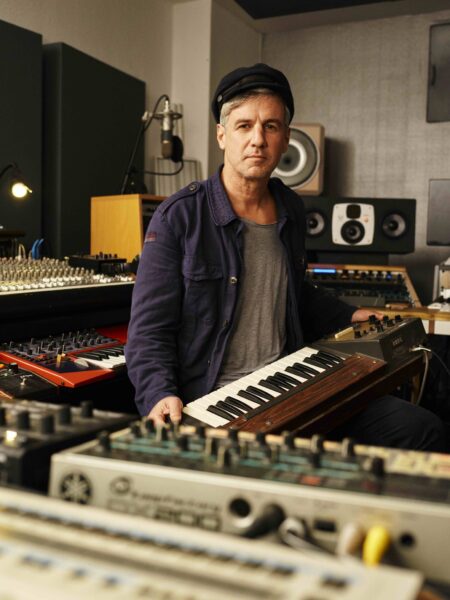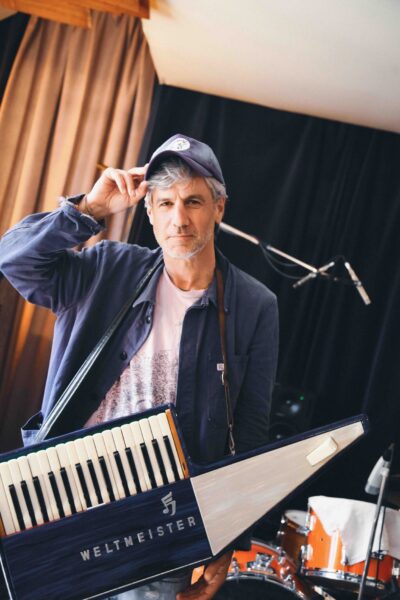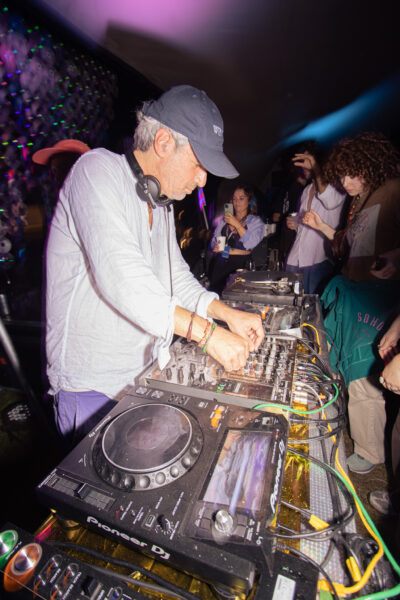We discuss the creation and rise of Toy Tonics and the scene from which it was born with its creator Kapote ahead of the Toy Tonics take over at Jaeger
One of the most recognisable labels, both visually and socially, Toy Tonics has been a staple of record shops and DJ bags since that first Hard Ton record back in 2012. Born out of the Gomma label, Toy Tonics took the sprawling sonic universe of that label and focussed it towards the dance floor.
It soon surpassed the expectations of founder and contributor Mathias Modica (aka Munk aka Kapote) who would channel all his efforts into the subsidiary, and eventually close down the parent label.
Today Toy Tonics is known for its sonic identity as a dance floor label that impresses a musicality that goes beyond the repetitive loops of club music. A healthy stable of artists including COEO, Black Loops, Cody Currie, Sam Ruffillio and on occasion Kapote, relay a dance music born from the most physical exertions and cultivated in the metric language of machines.
Between its base in Berlin and its origins in Munich, Toy Tonics undercuts the prevalence of Techno in the region with a unique approach to House music. Through their artists and extended family they’ve made a serious impression on an international audience over the course of their existence.
Today, a Toy Tonics record is one of those records you simply take to the listening station. There’s an instant recognition there and a satisfied expectation that appeals to many.
It’s an extension of the tastes and impulses of the man behind the label Mathias Modica and a very personal and individualistic sonic portrait of the modern dance floor. With a Toy Tonics takeover at Jaeger on the calendar, we caught up with the man behind the label and club night to talk about the meteoric rise of the label; its sonic identity; and the regional curiosities of running a House label in a Techno city.
Recently, Techno has been awarded unesco heritage status in Berlin. As an artist and label operator, erring on the side of House (for the sake of simplifying), while working from a scene with closer connections to Berlin, what are your thoughts on this?
It’s quite funny; isn’t it? They should ALSO have given this to Detroit, Chicago and Düsseldorf; the cities where techno as far as I understand it, was born.
Düsseldorf because all techno basically is rooted in that mechanic, four to the floor, robot aesthetic that KRAFTWERK invented in the mid 70’s.
Chicago because there they turned the electronic dance music that the Italians created in the early 80’s into that aesthetic that was the basis for early house music and that later became the foundation of what the guys in Detroit turned into that was known as techno.
Berlin people in the early 90’s adapted that and made it bigger and created labels and clubs ( as well as Frankfurt and Munich people).
But culture is fluent anyway, and so it’s hard to say where a certain style comes from or who should get the applause or prizes… Techno and early house would not exist without the Japanese machines and synths,. so Tokyo probably could also receive UNESCO awards.. :)
What have been some of the difficulties and/or advantages in releasing House music in a region that is dominated by the harder styles of electronic music?
I am Italian and was raised in Munich. As you might know the basis of house music is (Italian) disco.. . and also Munich was one of the 3 disco capitals in the late 70ies. Moroder, Donna Summer, Silver convention, Freddie Mercury have been living in Munich and created what was known as “the disco sound of Munich“. Munich was the capital of discotheques with more clubs than any other city in the late 70ies they say (in europe). So Disco and House music (that comes from disco) is in my blood and part of my culture. As techno comes from house music, it’s not far away.
Then the fact that Berlin is full of techno and trance clubs but not so many house people made it easy to grow here. It’s a fact that if everybody does the same thing, it’s not easy “to be special“ :)
So when we started to make our Toy Tonics parties in Berlin 5 years ago, it went very fast from an audience of 300 people to 800 or 1000 people. And now we have a huge audience. We are in all the relevant clubs with our parties and that diverse, organic dance music we stand for. We are regulars at Panorama Bar and we do a lot of events in former techno clubs like OXI, Griesmühle or Funkhouse.
When we spoke to COEO, they also mentioned that the “Giorgio Moroder/Donna Summer/Musicland Studios history” in Munich might have something to do with the richness in music from the region. What are your thoughts on this, and do you think it helps with the fact that a label like Toy Tonics got such a foothold there?
Yes as I said above: when u grow up in Munich as a DJ and dance music lover you grow up with a lot of older people who have crazy record collections or have been partying with people from the Moroder clique or run record stores of former DJs that used to play record in these legendary places. Or you have DJ teachers that tell you about the disco times or explain how to play records in a real “disco way.“ I mean; Munich and New York club culture was in many years quite a parallel affair. So a lot of my DJ teachers used to go to Mancuso’s Loft or hear Larry Levan playing and they handed down these points of views on the way to “read a dance floor“ or “create a vibe.“
Would Toy Tonics have had the same success if it originated from Berlin for instance?
Toy Tonics was basically launched from Berlin because most of us live there, including me, who’s lived there for the last 10 years. I have been DJing in Berlin since I was 22 years old.
Berlin wasn’t always a techno town. In the years between 2002 and 2012 the key clubs were places like RIO, SCALA and others. Indie dance and a combination of Rock, Hip Hop, Disco and other styles was the cool thing. Everything was very colourful, including the clothes.
The new wave of techno and trance started in 2012. It’s a revival, basically techno is a retro music from the 1990’s and it had a big comeback after 2012. Now techno and trance is a mainstream pop phenomena with commercial festivals and DJ stars who get 200.000 euros.
House and indie dance are still small compared to that but soon this will change :) Like in the early 2000s, when techno and rave culture went underground again. And instead indie dance and house became bigger. In 1998 everybody wanted to be a raver, and the love parade attracted 1 million people. In 2003 there was no love parade anymore and nobody wanted to be a raver. Instead DFA records, London Nu Rave, Daft Punk and the French touch were the cool thing. Times are changing right now again.
Toy Tonics is very much an institution in Munich and the label is very much linked to the area, with mainly artists from that region signed to the label. What was the landscape like in the beginning for the label, and how has it developed since?
Actually it’s not like that, the only Munich artists we have are COEO. Munich has changed a lot in the last few years and it’s a technological city now. Apple and Google have their European headquarters there. That’s why I left the city 15 years ago and now live in France and Berlin. The Toy Tonics artists come from London, Italy, France, USA and Brasil, Amsterdam, But most live in Berlin with me.
Your own history in music is about as diverse as the city itself, between your aliases Munk and Kapote, the labels Gomma and then Toy Tonics. What was your introduction into the world of electronic music and what informed your own eclecticism?
I come from a family of musicians. My parents brought me to classical concerts and jazz at an early age. I studied jazz piano but I was also singing in hardcore bands. I tried to be a rapper and produced electronic ambient stuff at an early age, so this eclectic approach has always been there.
As I explained before, being in Munich and being Italian means you have dance culture in my blood. So in a certain moment it made sense to connect my love for good music of any type with the DJ culture and try to create my own thing.
With Gomma you really stretched the purview of electronic music, and the connection with the dance floor would be tenuous compared to Toy Tonics. What consolidated for you in terms of musical ideas by the time you created Toy Tonics and established the alias Kapote?
Around 2014 when we started Toy Tonics we realised that there will be a massive new wave of dance music based on the 4 to the floor aesthetic. As Gomma was an extreme, wild style label where we did everything from avantgard industrial hip hop (The Rammellzee) to freak folk (with the Franz Ferdinand side projects) and proto house (headman) or electronic experiments. With Toy Tonics we wanted to create a label that basically does only dance music. It’s based on high quality house- and disco culture, based on the funk of afro American and Italian dance music culture.
It’s not often you see a sub-label become the dominant label, but that’s a little bit of what happened with Toy Tonics and its parent label Gomma, I feel. What caused you to shift your main focus to Toy Tonics over the course of its existence, and how has it been informed by what was happening around you?
Everything has its time, and I always look to the future. I don’t like nostalgia or being retro. So I thought it’s fresher to close Gomma in 2015 and concentrate on new things, Toy Tonics (with a new crew of artists and partners) and Kryptox. Our sublabel for bands from Berlin.
What are the origins behind the name Toy Tonics?
It’s a fun way to write TEUTONIC, which is an old way of saying, “ the people who lived in the region where Germany is now”.
Tell us a bit about that visual aesthetic that is so instantly familiar; where did it come from and what is the idea behind the unwavering nature of that visual aesthetic?
I am surrounded by artists and graphic designers. Many of my friends are artists, older ones with big careers and lots of success as younger ones who studied at art academies or were part of the Berlin underground scene. As I love art (and alternative design ), I always thought I wanted to include this into the label. We also do fanzines, poster and t-shirt designs that we sell on our webpage and exhibitions.
It’s fun to create a whole musical and visual universe that stands out. We did this already with Gomma records between 2002 and 2015 and now we do it again with a new team.
At Toy Tonics there is still this insistence on musicality in terms of artists playing instruments, but it’s always in perfect harmony with the insistence on the groove for dancing. What was the thinking behind this and what do you think it brings to any kind of sonic identity for the label?
I think the best DJs and most interesting electronic producers are the ones who also play real instruments or have been playing in bands and concerts. You simply have a different knowledge about music when you learn piano or guitar when it comes to writing a track or song. You work with chords… and chords create emotions and vibes or if you are a drummer you make totally different beat patterns with drum machines.
So most of the DJ producers I look for on Toy Tonics have this kind of background and I am sure that makes a big difference. People who dance to our music or our DJ sets maybe don’t know about this background but they FEEL it.
Is it a conscious decision on your part to find artists that fit that sound or are you lucky enough to just be surrounded by these artists?
It’s a natural flow. I meet people or I’m introduced to people and then we hang out, we DJ together or talk about music and then things happen.
Do you ever find yourself in a situation where an artist you really want on the label has submitted music and it doesn’t fit the sound or is perhaps not just not quite there and what do you do in a situation like that?
All kinds of things happen. Some people seem to fit and then others don’t or are not obviously perfect for us, but later we realised that we are a perfect match :)
As an artist that releases his own music on the label, how do you approach music you want to put out for the label?
I don’t release much music. I’ve probably made 1000 tracks in the last 20 years that have never been released. I prefer helping other, younger people to make good music and in many of the Toy Tonics releases of other artists I have been helping or co-producing. Maybe this will change, and I will release a lot of kapote music in 2024 :)
Is there some kind of critical consideration as a label owner that goes beyond what you do with other artists releasing on the label?
I am never happy with my own music, so I don’t do much. I prefer playing the piano alone at home.
Toy Tonics is very much a label born from the nightclub dance floor. I believe there have been some situations where the introductions to new artists for the label have been made on the dance floor. How does what you hear out on the dance floor and your relationships with the nightclub inform what Toy Tonics is?
If you go into pop music history you see that EVERY pop music started as a DANCE music. Dancing is the most natural thing to humans besides talking and making love :) So it’s super natural to make a music label that creates mainly dance music. Because GOOD dance music can also be music to listen to and the nightclub aka the dance floor is the place where general trends in music can be born. From the waltzes and Mozart’s minuets to Rock n Roll, Hip Hop or Garage Rock, that was all music made to dance to before it became “popular radio music“.
I imagine the Toy Tonics club nights are an extension of that. Besides bringing over artists from the label, what do you hope these nights try to convey to other audiences in other regions?
People should meet each other, talk and dance together, make friends and then fall in love, kiss and make babies. That’s all I want.

